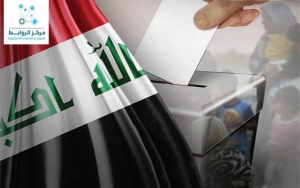Shatha Khalil
On 12/5/2018, the Iraqis went to the polls to choose their representatives in the House of Representatives in the first elections in the country after the defeat of the terrorist organization “ISIS” from all Iraqi territories.
The Electoral Commission announced that the percentage of voters in the elections was about 44%, indicating that the number of voters in the general elections amounted to 9, 952, and 264.
Many of the candidate national political blocs and the Iraqi citizen had fears and suspicions of fraud and manipulation of the results, and this is what happened.
The United Nations team issued warnings to the Iraqi Electoral Commission on April 30, 2018, 12 days before the vote, but it did not abide by it , including the following warnings:
– The failure of the electoral management system (EMS)
– The failure of the electoral statistics system (ESS)
– The failure of the electoral data archiving system (EDAS)
All these designs are from( Miro )company , a fictitious company contracted by the Electoral Commission in millions of dollars.
– UNHCR refused to use the expertise of the UN team to supervise and monitor the elections.
After hearing the evaluation issued by the United Nations , it was found that it is not satisfied with the performance of the Electoral Commission in Iraq, there is almost unanimous on the failure of its work, and on the Iraqi elections as a whole, and will issue a decision on it soon
It is indicating that Electoral Commission is involved in a deal with a company not officially approved and despite the warning to the Commission, but insisted on covering the failure and attempt covering the failure to complete the “election deal.”
Prime Minister Haider al-Abadi disclosed about the failure of Independent Electoral Commission, on the issue of voter registration systems in the legislative elections 2018, which took place throughout the country, Abadi explained that the Commission informed the government that it had not to chosen a company to examine the voting system a week before the elections.
Abadi depends to solve the problems and violations occurred in Kirkuk province on the repletion of manual counting and sorting as on 13 May 2018, Arab and Turkmen representatives in Kirkuk province demanded the adoption of manual counting and sorting and referring the staff of the Commission office in the province , those who were involved , to the judiciary .
The Kurdish al-Taghier Movement considered the parliamentary elections in Kurdistan and Kirkuk was fraud “blatantly by the Patriotic Union of Kurdistan and with the support of the Kurdistan Democratic Party expressing its r ejection of the unrealistic results of the elections demanding at the same time to re-counting and sorting results manually.
The Movement of al-Taghier confirmed the rejection of six Kurdish parties to the results of the elections in the region called for the resorting and counting manually to be fair for the Kurdish people, and the parties boycotted the election results will go to the far limits to get their rights and does not rule out resort to civil disobedience or mass demonstrations in the region.
The coalition of “al-Wataniyat” led by Iyad Allawi, called for the cancellation of the election results and re-conduct it later to provide “appropriate conditions” and to keep the current government to conduct business.
Al-Wataniya Coalition attributed the reluctance of the Iraqi people to participate in the elections widely, for the spread of violence, fraud, deception, vote buying and exploitation of the conditions of the displaced and immigrants.
The coalition added that “the foggy measures taken by the Commission, and the lack of transparency in the elections by electronic voting after the citizen used to different procedures in all previous elections, and such a reluctance will produce a legislature to be imposed on the citizen away from his desire, as well as a weak government does not receive the confidence required for its success.”
Fraud and the specter of corruption chase the Iraqis :
According to observers and analysts, there is no difference between the counting of votes electronically or manually, the specter of fraud and corruption chasing the election, through the purchase of devices in the millions of dollars which are not as efficient as required at imaginary prices, or by the appointment of more than one thousand employees in anticipation of the failure of these devices, and because of the distrust to the Electoral Commission , many expect it has been done by someone if the results are not consistent with what the parties and political blocs that control this commission want.
Political and media circles reported that some parties imported memory joints (connecting piece) that corresponded to those accepted by the electronic counting machines to be used in the elections and the possibility of using ” employees who are conniving ” to pass the new joints(connecting piece) to counting machines after providing it with the results for the benefit of parties.
The specialists emphasize that such abuses are possible on a wider scale in areas not reached by local and international supervisory bodies.
The electoral fraud has not ended at this point, but includes the possibility of penetrating the carrier’s center, which will transfer the results via satellite from the substations and the provinces to the general headquarters of the Commission in Baghdad.
Experts in this area say that parts of the Internet transport system are not encrypted, allowing the hackers to break it and manipulate the votes and results.
It is worth to be noted that the devices, which are non-conforming to the specifications, cost Iraq about half a billion dollars because of the wide range of concerns related to it. The Commission did not announce such a decision before the date of general election to prevent controversy or affect the participation rates of Iraqis already low due to the despair of change in the current political process.
Economic Studies Unit
Rawabet Center for Research and Strategic Studies

